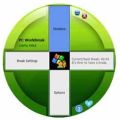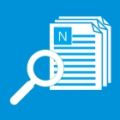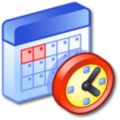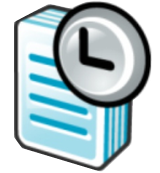Προσφέρουμε καθημερινά ΔΩΡΕΑΝ λογισμικό με άδεια χρήσης, που θα αγοράζατε σε διαφορετική περίπτωση!

Giveaway of the day — Windows Explorer Tracker 2.0
Windows Explorer Tracker 2.0 ήταν διαθέσιμο ως προσφορά στις 9 Φεβρουαρίου 2016!
Το Windows Explorer Tracker χρησιμοποιείται για να ανιχνεύσει/παρακολουθήσει και να καταγράψει τις λειτουργίες που εκτελούνται στον Windows Explorer αυτόματα, όπως την "Διαγραφή", την "Μετονομασία", την "Δημιουργία", την "Εισαγωγή", την "Προσθήκη" και την "Αφαίρεση" ενεργειών ή αρχείων, φακέλων, δίσκων και πολυμέσων μνήμης. Επιπλέον, μπορείτε να το χρησιμοποιήσετε για να εντοπίσετε και να καταγράψετε λειτουργίες σε απομακρυσμένο εξυπηρετητή μέσω των χαρτογραφημένων δίσκων του δικτύου. Καταγράφει τις αυθεντικές λειτουργίες σε πολλά αρχεία μορφής .log και τα ονομάζει με βάση την ημερομηνία.
Σημαντική Σημείωση: Το πρόγραμμα περιλαμβάνει Δωρεάν Αναβαθμίσεις για 1 Χρόνο. Λάβετε έκπτωση 50% για την Άδεια Μοναδικής Χρήσης (για 1 Η/Υ) και την Άδεια Προσωπικής Χρήσης(για 3 Η/Υ) με Αναβαθμίσεις Εφ' Όρου Ζωής του Προγράμματος, μόνο σήμερα!
Προαπαιτούμενα:
Windows XP/ 2003/ Vista/ 7/ 8/ 8.1/ 10 (x32/x64)
Εκδότης:
TriSun Software LimitedΣελίδα:
http://www.trisunsoft.com/windows-explorer-tracker/Μέγεθος Αρχείου:
5.7 MB
Τιμή:
$19.99
Προτεινόμενοι τίτλοι

Παρέχει τις κατάλληλες υπενθυμίσεις για να μειώσει τον κίνδυνο εμφάνισης του Συνδρόμου Επαναλαμβανόμενης Καταπόνησης (RSI). Προσφέρει υπενθυμίσεις διαφόρων τύπων, όπως για σύντομο διάλλειμα, για τέντωμα, για ασκήσεις ματιών και περπάτημα, με βάση το μοντέλο χρήσης του Η/Υ σας. Όλες οι ρυθμίσεις είναι προσαρμόσιμες.

Βρίσκει με μεγάλη ταχύτητα τα διπλά αρχεία στους δίσκους σας με βάση το περιεχόμενο των αρχείων και σας δίνει την δυνατότητα να διαγράψετε τα ανεπιθύμητα αρχεία σύμφωνα με τις ανάγκες σας, με σκοπό να ανακτήσετε πολύτιμο χώρο στον δίσκο σας, να μειώσετε το κόστος διαχείρισης και να αποφύγετε την περιττή σύγχυση.

Σας επιτρέπει να εμφανίσετε γρήγορα όλους τα μεγέθη δίσκων/καταλόγων/αρχείων σε 1 προβολή δέντρου, ώστε να σας δώσει τη δυνατότητα να εκτελέσετε χειροκίνητο καθαρισμό δίσκου με ευκολία. Υποστηρίζει την λειτουργία πόρων ανά ομάδες.

Ένα πλήρες εργαλείο υπολογισμού ημερομηνίας και ώρας, τελικής ημερομηνίας, ημερών μεταξύ ημερομηνιών και πολλών άλλων.

Το Advanced Recent Access είναι σχεδιασμένο για να εμφανίζετε και να ανοίγετε τους προσφάτως χρησιμοποιημένους πόρους (αρχεία και καταλόγους). Επιλέον, μπορείτε να εμφανίσετε περισσότερες ιδιότητες των προσφάτως χρησιμοποιημένων πόρων, όπως την διαδρομή, το μέγεθος, τον τύπο, την ημερομηνία τροποποίησης και την ημερομηνία δημιουργίας.

Σχόλια σχετικά με το Windows Explorer Tracker 2.0
Please add a comment explaining the reason behind your vote.
I use freeware Activity Indicator v1.1.5.32 which has more options, and for those laptop users that do not have HDD LEDs, this doubles as an status indicator that you can customize, just be sure to disable logging in that case.
And for those that want even more tools, the extensive freeware WSCC (Windows System Control Center) v2.5.0.7 is the go-to toolbox that you should have on your PC, thumb-drive, recovery disc, etc. It's a powerhouse of tools from Nirsoft and Windows Sysinternals with an attractive GUI that you can customize yourself. The included binaries are in x86 and x64, with GUI option to use the x64 version whenever possible.
Thanks GOTD for showing something new, but today's offer is not for me.
Save | Cancel
Installed and registered without any difficulties and on opening a clean interface.
After running for a couple hours it has listed a number of files been created deleted etc.
I'm sure there are rare occasions when this information would be useful but the limited functions available do not make it a particularly useful program.
A Free program I have found that is much more useful for gleaning information about what exactly the system is doing is available at the following link:-
http://systemexplorer.net/
Today's download will go in my folder called Tools, it contains many programs both free and paid for that help analyse many problems that occur in a system.
Save | Cancel
XP-Man
What I like about System Explorer is the Snapshot feature, which can record before and after scenarios which includes registry and file changes occurring on the hard drive. The initial Snapshot takes the longest, but viewing changes using the tree-like structure makes it easy to see what differences have occurred.
The only thing I wish it did right is when opening Windows Registry from it, as it will launch the x86 version instead of the x64 version if on a x64 OS. The end result not seeing the 'full' registry picture if one were to launch it manually, via the Run Box for example, that starts the expected x64 version. To be sure, the x64 version of Regedit has the Wow6432Node that mirrors (for a lack of a better word) what the x86 version of Regedit can show.
System Explorer shines with it's on-demand Virus-Total scanner, useful as a second 'opinion' to the installed protection one has on their PC to test any file either in memory running or on the local drive.
Thanks for your comment XP-Man, and good luck stocking your Tool Box with more awesome programs.
Save | Cancel
There are 2 usual reasons I think that files are added or deleted -- software installation or removal, or in the course of working on whatever, files get saved & may be deleted.
Though we can forget later, we know when we save or delete a file. We may not know what intermediate or temporary files the software we're using creates, or if it deletes those files afterwards. Working with audio & video files for example, those often temporary files can get quite large, & don't always go away after you close the software. That's one possible use for Windows Explorer Tracker.
We you install software it can be useful to know what get's added where. It helps you to judge that installation's impact on Windows & your system disk, e.g. the other day a GOTD added 300MB to the ProgramData folder, regardless where the program itself was installed, which made a difference for many people running Windows on a SSD -- the size of a SSD depends on how much you spend, with the majority of SSDs in use not having much storage space to spare.
It also helps if/when you decide to remove a program... save the logs from Windows Explorer Tracker that you made during installation, along with those from something like Regshot [which records changes to the registry], & you've got a pretty complete picture of what should be removed. And it can help troubleshooting when installing software breaks something.
If you are someone who doesn't like temporary files sticking around, running Windows Explorer Tracker when software updates should tell you where the update's setup files are stored & if they're deleted afterwards -- I've seen software updates leave over 1GB behind. Similarly you might find it easier than manually checking yourself if Windows 7-8.1 has downloaded, or started to download the setup files for 10.
That said, where it might be most useful would be using Windows Explorer Tracker much the same way IT staff may monitor activity to spot hackers & malware, though granted they have better tools to search the logs looking for trouble. A couple few weeks ago a guy commented on another site that the only sign he had that a system was infected was a keylogger log file he happened to see in the temp folder just by chance. New files are not created or saved all that often, & while looking at what Windows Explorer Tracker records isn't 100% foolproof [companies still have their systems breached despite logging] it could [should] probably help with the more common varieties of malware.
Save | Cancel
I give the publisher high marks for originality. We tend to see one after another softwares doing similar tasks (video converters, PDF manipulators) so this is an interesting change of pace.
It's not a program I can see me using so I'll decline but I do decline with a big thank you to the publisher and GOTD.
Save | Cancel